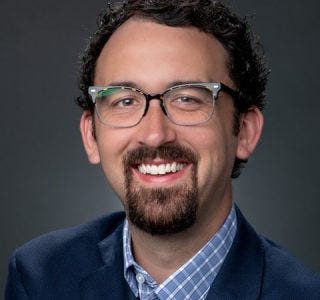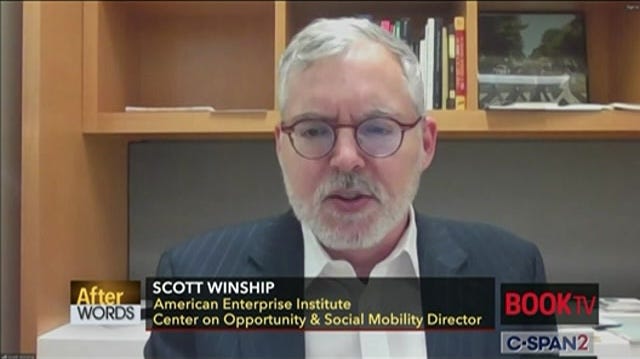Contract bridge
FreeCons seek entitlement reforms to promote personal & fiscal responsibility
If you want to criticize the reconciliation bill currently working its way through Congress for spending too much, Freedom Conservatives won’t argue the point.
Indeed, FreeCon signatories and allies are among the most vocal proponents of making federal deficits smaller, not bigger. “The skyrocketing federal debt,” we wrote in our Statement of Principles, “is an existential threat to the future prosperity, liberty, and happiness of Americans.”
Unfortunately, most attacks on the bill — from the Progressive Left and even, in some cases, from the Populist Right — advance the notion that it achieves too much budget savings, not too little, especially in Medicaid and nutrition assistance.
Freedom Conservatives strongly disagree. Because entitlement spending already represents the largest share of the federal budget, and is the fastest-growing category, there is no practical alternative to finding savings there: in Medicaid, yes, as well as Medicare, Social Security, and subsidies for exchange plans under the Affordable Care Act.
“We commit to building a constructive reform agenda that can restore America’s fiscal sustainability,” the FreeCon statement continues, “ensuring that future generations inherit a more prosperous and secure nation than the one we now inhabit.”
FreeCon signatory James Capretta, for example, recently described potential savings from reforming Medicare Advantage plans with competitive bidding, standardized benefits, and changing risk-adjustment payments. The bidding proposal alone could save $500 billion over the next decade.
But the benefits of modifying the social contract on entitlements aren’t just fiscal. Current programs disincentivize work, promote dependency, weaken families, and discourage private initiative by institutions of civil society.
Today we feature FreeCons seeking to reform America’s costliest category of public assistance: health care.
Proven roadmap
Nicholas Horton is the founder and CEO of Opportunity Arkansas and a FreeCon signatory.
A former research director at the Foundation for Government Accountability and editor of The Arkansas Patriot, Horton has supplied policy analysis and insights to The Wall Street Journal, Fox News, Forbes, National Review Online, the Washington Examiner, and Townhall, among other outlets.
In a recent post, Horton explained Arkansas’s past experience with Medicaid work requirements and the need for Congress to impose them in its reconciliation bill.
“Based on actual data from our state’s Medicaid agency, in just a few months, more than 14,000 Arkansans left the program because their incomes increased as they went back to work,” he wrote.
Critics often cite a flawed Harvard study of the state’s work rules that was, in reality, a “telephone survey” that included “individuals who were not even subject to work requirements, was conducted prior to the full implementation of the work requirement, and had a massive margin of error.”
“Congress has a once-in-a-generation opportunity to fix Medicaid and Arkansas has given them a proven roadmap. A strong work requirement should be a top, urgent priority.”
A recent Washington Post story quoted Opportunity Arkansas’s call for Congress to restore “Medicaid as a safety net for the truly needy, not a long-term program for able-bodied adults,” and to “encourage work and self-sufficiency.”
Work works
Scott Winship is a senior fellow and the director of the Center on Opportunity and Social Mobility at the American Enterprise Institute. He’s also a FreeCon signatory.
Previously the executive director of the Joint Economic Committee of Congress, Winship has testified numerous times on Capitol Hill and been widely published in such outlets as National Affairs, National Review, the American Prospect, the New Republic, the New York Times, the Wall Street Journal, and the Washington Post.
In a recent Civitas Outlook essay, he argued that work requirements for able-bodied Medicaid recipients could boost their incomes and reduce poverty rates.
“In the public imagination, ‘work requirement’ means kicking existing beneficiaries off the rolls as punishment for not complying,” Winship wrote.
“However, experience with the welfare reforms of the 1990s suggests that the most critical effect of work requirements on employment and income might operate through two other channels: encouraging people to leave the rolls before they are sanctioned and preventing people from joining the rolls in the first place.”
Contrary to progressive predictions at the time, welfare reform made low-income households better off, not worse off.
“If I were someone who cares about poor people — and I am! — I would carefully consider the experience of welfare reform before confidently thinking that conservative reforms will be harmful to them.”
Brokers game the system
Brian Blase (right) is president of Paragon Health Institute and a FreeCon signatory.
Blase previously served as special assistant to the president for economic policy during the first Trump administration, guided the U.S. House Committee on Oversight and Government Reform’s health care and entitlement program oversight and investigation efforts, and served as the U.S. Senate Republican Policy Committee’s health policy analyst.
In a new Paragon report on Affordable Care Act health exchanges, Blase and his coauthors demonstrate that improper enrollment and fraud surged over the past year— rising by more than one-quarter to nearly 6.4 million ineligible recipients.
“We estimate that the taxpayer cost of improper enrollment will exceed $27 billion this year,” they wrote. “Under more expansive and likely realistic assumptions, improper enrollment reaches 7.1 million people.”
The perverse incentives of the system have attracted “unscrupulous brokers” who “understand how to game Obamacare,” they explained.
In its coverage of the Paragon report, the Washington Post noted that the Biden administration’s attempts to make it easier for people to sign up for insurance through the federal marketplace website allowed insurance brokers to “enroll people, sometimes without their knowledge, for subsidized plans by misstating their incomes, while earning commissions from insurers.”
“Fortunately, the Trump administration is taking a different approach from the Biden administration,” Blase and his coauthors concluded, “and has proposed a regulation to reverse the previous administration’s enrollment-at-any-cost policies.”
The reconciliation bill now working its way through Congress “would codify the provisions of the Trump administration’s rule and implement additional vital integrity measures, including ending automatic re-enrollment and requiring full subsidy recapture if insurers receive too much advance subsidy.”
In the mix
• In the Wall Street Journal, FreeCon signatory Samuel Gregg reviewed The Triumph of Economic Freedom, the latest book by former U.S. Sen. Phil Gramm and FreeCon signatory Don Boudreaux.
“A common theme,” wrote Gregg, president of the American Institute for Economic Research, “is the extent to which government intervention has either made situations worse during crises or impeded economic progress in other periods.”
Even when “confidence in markets has plummeted,” he continued, “Americans still innovate, refuse to embrace a zero-sum mentality and understand that the way to become wealthy is to provide other people with goods and services they value.”
“Give them economic liberty, Gramm and Boudreaux stress, and there is little Americans can’t achieve.”
• At Liberty Fund’s Econlog, FreeCon signatory Jon Murphy rebutted the notion that imposing tariffs is an effective way to produce trade agreements.
“Both US tariffs on Chinese goods and Chinese tariffs on US goods are permanently higher after the trade war than before,” wrote Murphy, an assistant professor of economics at Nicholls State University.
“One cannot negotiate when one does not fundamentally understand the topic at hand; it’s like negotiating to buy a car without understanding what a car is supposed to do.”
• Two recent episodes of the “Liberty and Leadership” podcast, hosted by Fund for American Studies president Roger Ream, featured fellow FreeCon signatories.
Jenna Robinson, president of the James G. Martin Center for Academic Renewal, offered her perspective on the state of American higher education and how to restore its core mission. Watch or listen here.
And Robert Lawson, director of the Bridwell Institute for Economic Freedom at Southern Methodist University, discussed with Ream the dangerous appeal of socialism in modern political discourse, the real differences between Scandinavian welfare states and actual socialist systems, and why economic freedom remains essential to human flourishing. Watch or listen here.




